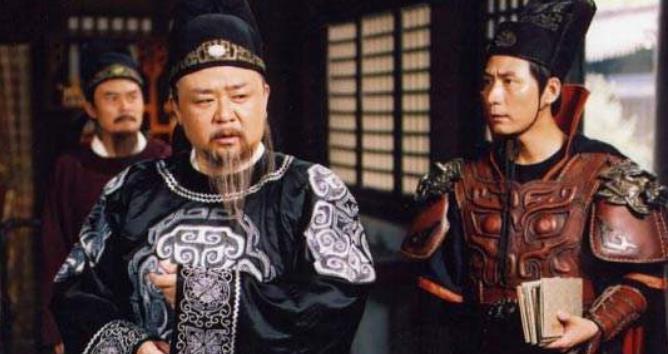After Di Renjie became prime minister, he pushed his son for the first time, did he not understand that he should avoid relatives?
Di Renjie was a famous minister of the Tang Dynasty, he made a great contribution to the continuation of the Tang Dynasty's social welfare, one of the more important points is that he also recommended a lot of valuable talents for the imperial court, such as Yao Chong, Zhang Kamzhi, and later became the famous ministers of the Tang Dynasty, but few people noticed that after Di Renjie became the prime minister, the first person recommended was not an outsider, but his son, did he not understand that he wanted to avoid relatives?
In the first year of the Holy Calendar (698 AD), Wu Zetian asked Di Renjie to recommend a person as Shang Shulang. Di Renjie recommended his son Di Guangsi. Di Guangsi was the youngest of Di Renjie's three sons, and the best. In Shang Shulang's position, Di Guangsi did a relatively good job, and Wu Zetian felt that this was a person who made full use of his talents and praised Di Renjie for his vision.

It is necessary to have courage to recommend his own people, Di Renjie pushed his son up, if this son is not a mediocre, but works well in the workplace, then he will only get the respect of others, which is fundamentally different from the kind of inability to push his incompetent relatives up.
In ancient times, there was actually a rule for the wise to avoid relatives. The Later Han Shu Cai Se Lie Biography says: "In the beginning, the court proposed to the party in the prefecture and county, and the people of the two states were not allowed to be imprisoned. To the point that there are three reciprocal laws, taboos are forbidden to transfer secrets, it is difficult to choose, and it is difficult to make up for the lack of two states. This means that locals must not be local governors, marriage homes may not be mutually supervised, and people who are related by blood or marital relatives must not be officials in the same department or region. Of course, there is no one-size-fits-all approach here, if it is not in the same department or anything, it does not matter if the elite does not avoid relatives, it is important not to pull in the incompetent relatives and cause people to gossip.
Let's take an example of the failure of the sages who did not shy away from their relatives, which also happened to a prime minister in the Tang Dynasty.
Li Sheng, the chancellor of the Tang Dynasty, was very energetic and fertile, and had more than a dozen sons. At the recommendation of Li Sheng, all twelve sons became court officials, especially the tenth son, Li Ting, who became the assistant lawyer of Taichang Temple at the age of seven, and according to today's understanding, he is the chief conductor of the royal band. The official position obtained in this way is often only a name, but Li Ting actually goes to work every day, as for the professional ability in music and dance, Li Ting naturally does not understand anything, he will beat people, often beat his subordinates to the birth of a Buddha, and the second Buddha ascends to heaven. After doing so, Li Sheng also made his reputation stink.
Di Renjie did not shy away from relatives, and received praise, while others did not shy away from relatives, but ushered in the saliva of the world. The fundamental purpose of lifting a virtuous person does not avoid relatives, and the fundamental purpose lies in whether there is a capable relative, if there is, it can be lifted, and if not, it is still good not to lift.
The difference between nepotism and meritocracy is not whether it is one's own relatives or others who are recommended or appointed, but whether the purpose of recommendation or appointment is not out of public conscience, and whether the person recommended and appointed is competent. The person who recommends or appoints is competent and beneficial to the work, even if his own relatives are meritocratic; the personal advantage and the work is not effective, even if the recommendation or appointment is an outsider, can not be regarded as meritocratic.
Unfortunately, among Di Renjie's sons, only Di Guangsi was outstanding. All that's left is to develop outward.